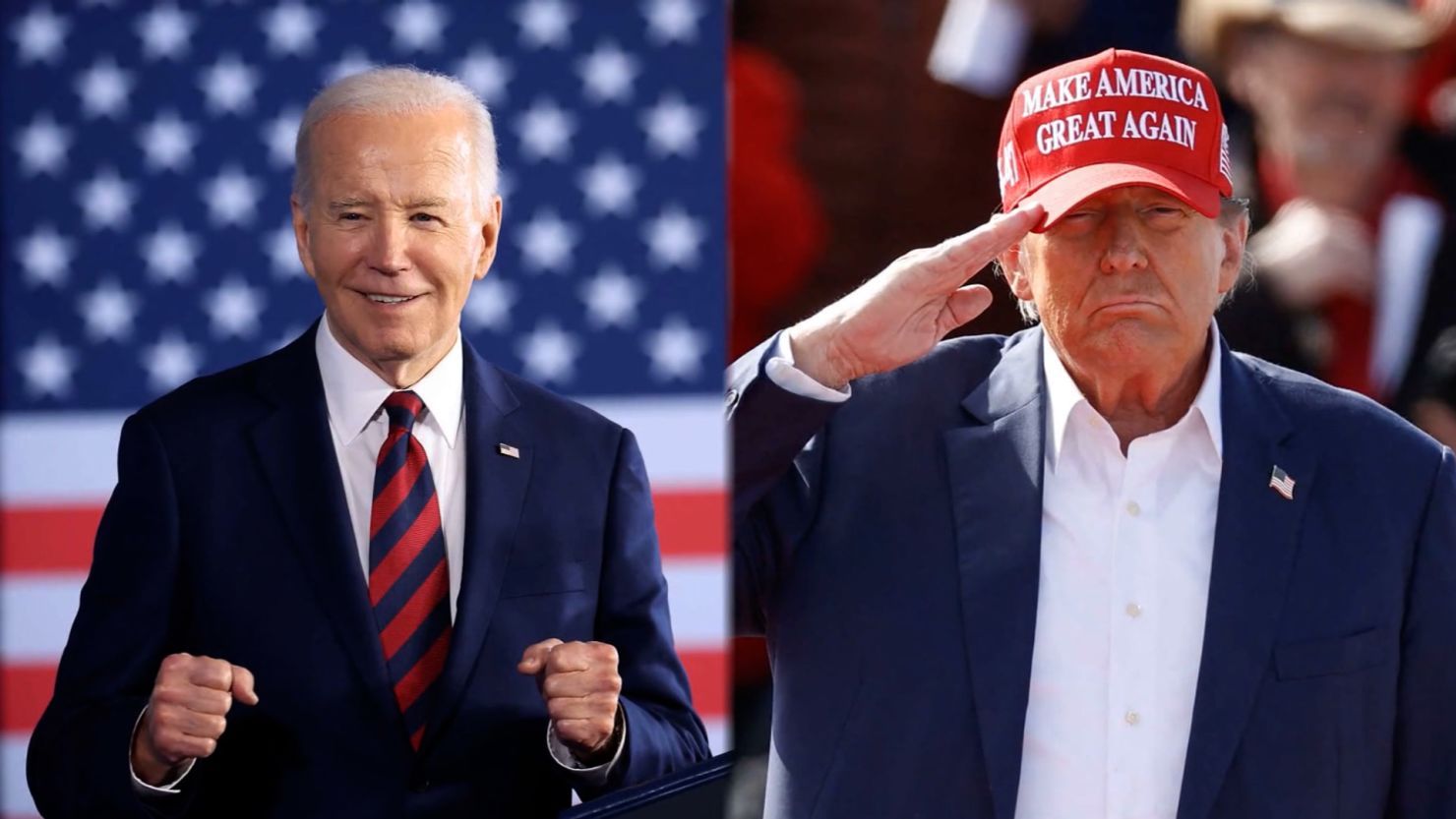In the looming specter of the 2024 US presidential elections, the political landscape appears entrenched in a perpetual cycle of discontent and disillusionment. At the forefront of this electoral showdown stand two familiar figures: incumbent President Biden and former President Trump. Yet, behind the veneer of democratic choice lies a labyrinth of unresolved tensions and contradictions that lay bare the underlying fissures within American politics and foreign policy.
Biden, despite securing the Democratic Party nomination, finds himself grappling with a steady erosion of support, particularly among progressive voters and the youth demographic. His steadfast backing of Israel amidst its actions in Gaza has ignited fury among those who view his stance as complicit in human rights violations. Furthermore, Biden's failure to deliver on progressive promises, epitomized by the collapse of his ambitious social spending package "Build Back Better," has exacerbated disillusionment among constituents disillusioned with the status quo.
On the other end of the political spectrum, Trump's tenure as president left a legacy tarnished by controversy and bellicose foreign policy decisions. His mishandling of the COVID-19 pandemic and his heavy-handed response to nationwide protests against police brutality in 2020 drew condemnation from across the political spectrum. Moreover, Trump's adherence to traditionally hawkish US foreign policy goals, exemplified by the assassination of Iranian General Qassem Soleimani and his unwavering support for Israel, underscored the continuity of American militarism under his leadership.
The recent Supreme Court ruling upholding Texas' draconian immigration law further underscores the nation's deep-seated immigration woes. The law, known as S.B. 4, grants state law enforcement unprecedented powers to arrest and deport non-citizens, effectively militarizing immigration enforcement within Texas borders. This flagrant violation of constitutional principles has sparked outrage among immigrant communities and human rights advocates, who denounce it as an assault on the dignity of migrants and a betrayal of America's professed values of liberty and justice for all.
Amidst the cacophony of electoral politics, a burgeoning movement for systemic change is gaining traction within the US. Karina Garcia, running for Vice President alongside Claudia De La Cruz, embodies this spirit of resistance and renewal, advocating for a radical overhaul of US foreign policy and a reorientation towards anti-imperialist and socialist principles. Her platform, which emphasizes demilitarizing the border, granting full rights to immigrants, and addressing the root causes of migration driven by US imperialism and neoliberal economic policies, resonates with a growing segment of the population disillusioned with the status quo.

As the US hurtles towards another pivotal election, it confronts a series of existential questions about its identity and future trajectory. The choice between Biden and Trump epitomizes the deep-seated divisions and ideological fault lines that define contemporary American politics. Yet, amidst the chaos and uncertainty, there exists a glimmer of hope for transformative change—a vision rooted in principles of justice, equality, and solidarity. By embracing a politics of resistance and solidarity, the US can chart a course towards a more just and equitable future for all its citizens and residents. Only through bold action and a commitment to progressive transformation can the US fulfill its promise of democracy and equality for all.

